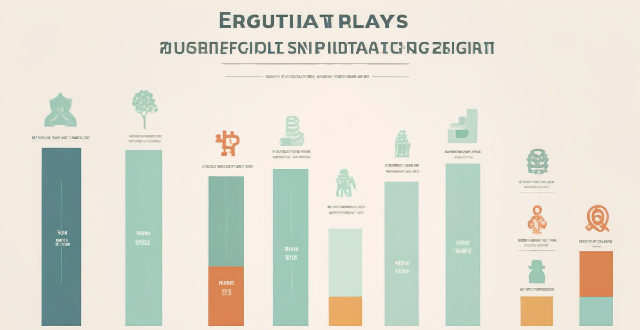Financial regulation plays a crucial role in the economy by ensuring stability, promoting fairness, and protecting consumers. It helps maintain stability by reducing systemic risks, promotes fairness by enforcing laws against fraudulent activities and protecting consumer interests, and supports economic growth by supporting infrastructure development, promoting access to finance, and encouraging foreign investment. Striking a balance between regulation and market freedom is essential for long-term prosperity.

How Does Financial Regulation Affect the Economy?
Financial regulation plays a crucial role in the economy by ensuring stability, promoting fairness, and protecting consumers. In this response, we will explore how financial regulation affects the economy in various aspects.
1. Stability and Risk Management
Financial regulation helps maintain stability in the economy by reducing systemic risks. It does so by:
- Preventing excessive risk-taking: Regulators set limits on the amount of risk that financial institutions can take, such as capital requirements and leverage ratios. This reduces the likelihood of financial crises caused by reckless behavior.
- Promoting transparency: Regulations require financial institutions to disclose information about their operations, assets, and liabilities. This transparency helps investors make informed decisions and reduces information asymmetry.
- Encouraging diversification: By limiting exposure to a single asset class or market, regulators encourage financial institutions to diversify their investments. This reduces the impact of any one sector or market on the overall economy.
2. Fairness and Market Integrity
Financial regulation promotes fairness in the economy by ensuring that all market participants play by the same rules. It achieves this through:
- Preventing fraudulent activities: Regulators enforce laws against insider trading, market manipulation, and other forms of fraud. This protects investors from unfair practices and maintains the integrity of financial markets.
- Protecting consumer interests: Financial regulations aim to safeguard consumers from deceptive marketing practices, hidden fees, and predatory lending. This promotes trust in financial institutions and encourages responsible borrowing and saving habits among consumers.
- Encouraging competition: Regulators strive to create a level playing field for all market participants, including new entrants and small businesses. This fosters innovation and competition, leading to better products and services for consumers.
3. Economic Growth and Development
Financial regulation also plays a vital role in promoting economic growth and development by:
- Supporting infrastructure development: Regulators often provide incentives for financial institutions to invest in infrastructure projects, such as roads, bridges, and public transportation systems. These investments create jobs, stimulate economic activity, and improve the quality of life for citizens.
- Promoting access to finance: Financial regulations aim to ensure that individuals and businesses have access to affordable credit and financing options. This supports entrepreneurship, small business growth, and job creation.
- Encouraging foreign investment: Regulators work to attract foreign investment by creating a stable and transparent regulatory environment. This boosts economic growth by providing capital for local businesses and creating opportunities for international trade.
In conclusion, financial regulation has a significant impact on the economy by promoting stability, fairness, and economic growth. While some may argue that excessive regulation can hinder innovation and stifle economic growth, it is essential to strike a balance between regulation and market freedom to ensure long-term prosperity for all stakeholders involved in the economy.